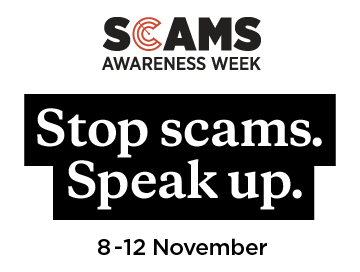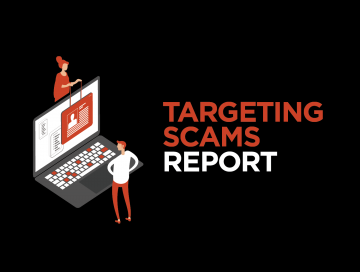83 results, showing 1 to 10
Criminals are impersonating real businesses and offering fake sustainability investment bonds. They claim these bonds offer high returns and are protected by the government.

Criminals are emailing people claiming they have hacked into their computers or webcams and have access to compromising images and videos of them. These criminals threaten victims saying they will release the images and videos unless they are paid.

Criminals are calling, emailing or messaging people and pretending to be from their bank so that they can steal your money.

Scammers are creating lifelike impersonations (or 'deepfakes') of celebrities and public figures, who appear to be promoting 'quantum' or 'AI' online trading platforms.

Scams Awareness Week 2021 takes place 8-12 November. This Scams Awareness Week we’re encouraging everyone to start a conversation about scams.

Since August 2021, many Australians have been getting scam text messages about tracking a delivery, missed calls or voicemails, along with a link to download some software. If you receive one of these messages, do not click or tap on the link.

Police have received reports of scams involving fake Australian Federal Police (AFP) representatives targeting vulnerable members of the community.

Investment scams reported to Scamwatch have cost Australians over $70 million in the first half of this year, more than the total losses reported to Scamwatch for all of 2020, and projected losses are set to reach $140 million by the end of the year.

Last year scammers stole close to $34 million collectively from people who identified as culturally and linguistically diverse (CALD), people with disability, and Indigenous Australians.

Australians reported a record-breaking $37 million lost to Scamwatch last year for dating and romance scams. Total losses are expected to be much higher and scammers are now using dating apps to lure victims into investment scams.



